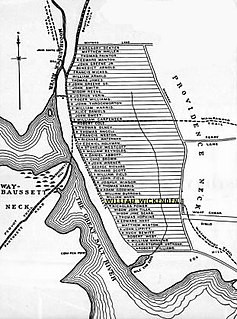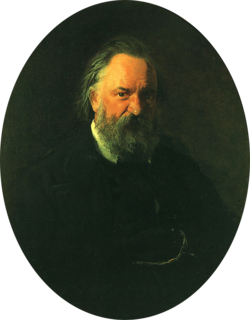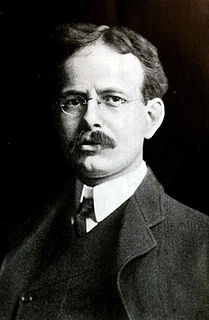A Quote by Bertrand Russell
Adventurous men enjoy shipwrecks, mutinies, earthquakes, conflagrations, and all kinds of unpleasant experiences. They say to themselves, for example, 'So this is what an earthquake is like,' and it gives them pleasure to have their knowledge of the world increased by this new item.
Related Quotes
Pleasure is not the goal of man, but knowledge. Pleasure and happiness comes to an end. It is a mistake to suppose that pleasure is the goal. The cause of all the miseries we have in the world is that men foolishly think pleasure to be the ideal to strive for. After a time man finds that it is not happiness, but knowledge, towards which he is going, and that both pleasure and pain are great teachers.
We must take the abiding spiritual values which inhere in the deep experiences of religion in all ages and give them new expression in terms of the framework which our new knowledge gives us. Science forces religion to deal with new ideas in the theoretical realm and new forces in the practical realm.
As was the case for Nobel's own invention of dynamite, the uses that are made of increased knowledge can serve both beneficial and potentially harmful ends. Increased knowledge clearly implies increased responsibility. We reject the notion advocated in some quarters that man should stop eating from the tree of knowledge, as if that were humanly possible.
The truth is, I do indulge myself a little the more in pleasure, knowing that this is the proper age of my life to do it; and, out of my observation that most men that do thrive in the world do forget to take pleasure during the time that they are getting their estate, but reserve that till they have got one, and then it is too late for them to enjoy it.
The essence of modernity is that progress no longer waits on genius; instead we have learned to put our faith in the organized efforts of ordinary men. Science is as old as the race, but the effective organization of science is new. Ancient science, like placer mining, was a pursuit of solitary prospectors. Nuggets of truth were found, but the total wealth of knowledge increased slowly. Modern man began to transform this world when he began to mine the hidden veins of knowledge systematically.
I'm not the "not-working" type. I derive pleasure from my work. Work gives me relaxation too. Every moment I am thinking of something new: making a new plan, new ways to work. In the same way that a scientist draws pleasure from long hours in the laboratory, I draw pleasure in governance, in doing new things and bringing people together. That pleasure is sufficient for me.
I think when people say they dread going into work on Monday morning, it's because they know they are leaving a piece of themselves at home. Why not see what happens when you challenge your employees to bring all of their talents to their job and reward them not for doing it just like everyone else, but for pushing the envelope, being adventurous, creative, and open-minded, and trying new things?
We have no knowledge, that is, no general principles drawn from the contemplation of particular facts, but what has been built up by pleasure, and exists in us by pleasure alone. The Man of Science, the Chemist and Mathematician, whatever difficulties and disgusts they may have had to struggle with, know and feel this. However painful may be the objects with which the Anatomist's knowledge is connected, he feels that his knowledge is pleasure; and where he has no pleasure he has no knowledge.
Most of us have no sympathy with the rich idler who spends his life in pleasure without ever doing any work. But even he fulfills a function in the life of the social organism. He sets an example of luxury that awakens in the multitude a consciousness of new needs and gives industry the incentive to fulfill them.
Like buried treasures, the outposts of the universe have beckoned to the adventurous from immemorial times. Princes and potentates, political or industrial, equally with men of science, have felt the lure of the uncharted seas of space, and through their provision of instrumental means the sphere of exploration has made new discoveries and brought back permanent additions to our knowledge of the heavens.



































